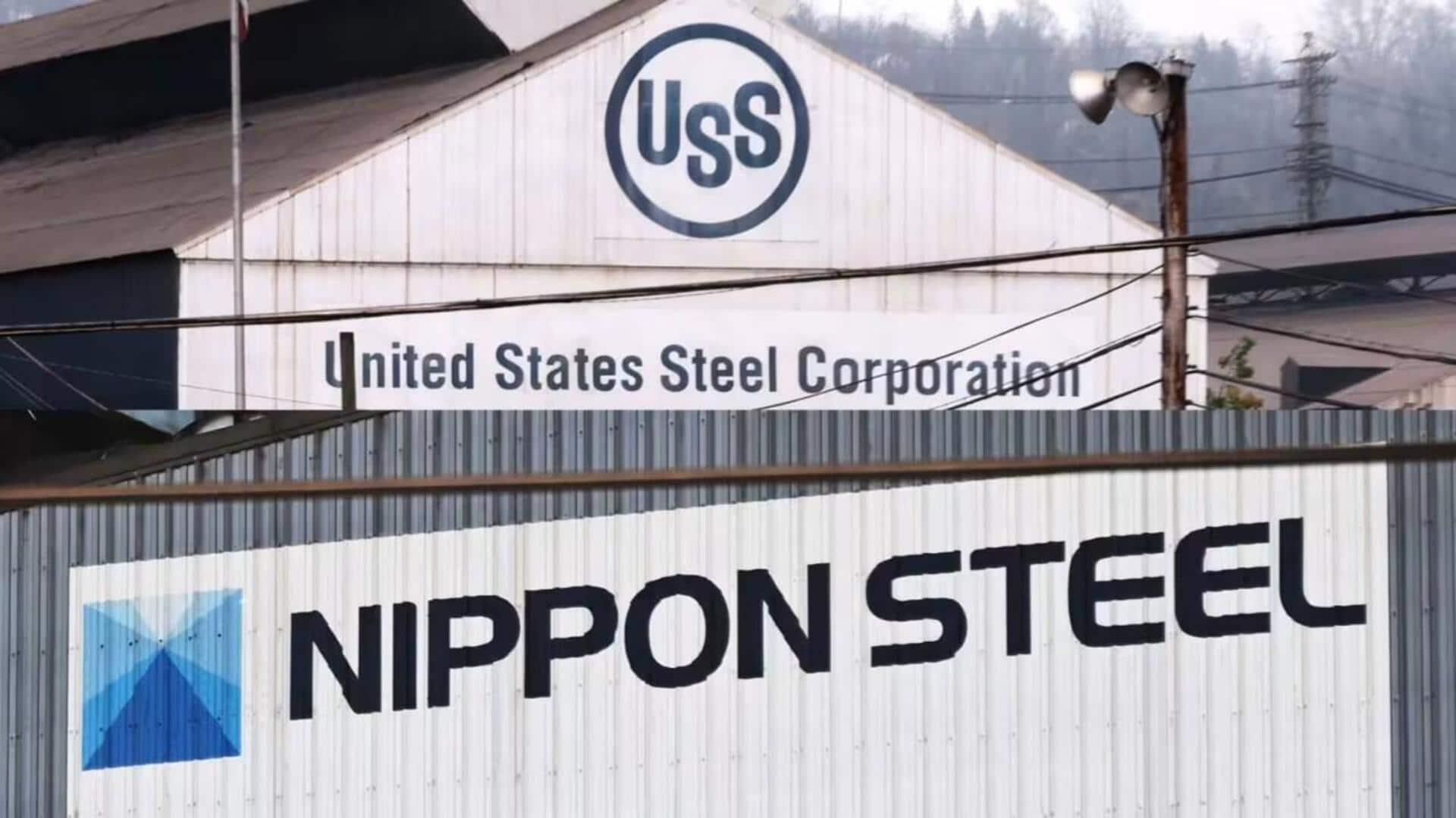
Trump approves Nippon Steel's $14.9B takeover of US Steel
What's the story
US President Donald Trump has approved Japanese conglomerate Nippon Steel's $14.9 billion acquisition of United States Steel Corp. The approval comes after a long negotiation process that included national security reviews and union opposition. The companies have now announced they have signed an agreement addressing any national security concerns related to the merger, fulfilling Trump's directive and effectively securing his approval for the deal.
Deal details
Deal to create major domestic competitor to Nucor Corp
The merger will create the world's second-largest steelmaker, a major domestic competitor to Nucor Corp. The deal also paves the way for improved steel production in areas where the US has lagged behind in recent years. This includes high-grade steel, which is critical to strengthening struggling electric grids across the country.
Investment plans
Nippon Steel to invest an additional $14 billion
As part of the deal, Nippon Steel will invest an additional $11 billion by 2028. This includes an initial commitment to a greenfield project, though the source articles do not specify that it will be completed after 2028. The Japanese company has also committed to investing another $3 billion after 2028 for a new steel mill, bringing the total additional investment (beyond the purchase price) to $14 billion.
Control measures
Post-transaction company will have 'golden share' for US government
The US government will hold a "golden share" in the post-transaction company, giving it veto power over key decisions. The deal also includes unprecedented US control measures, some control over board seats, and stipulations that certain leadership positions be held by American citizens. However, the golden share does not provide an equity stake in the company.
Strategic investment
Japanese minister welcomes decision; local union leaders support deal
Japan's Minister of Economy, Trade and Industry, Yoji Muto, welcomed the decision by the US government. He said he believes this investment will bolster innovation capabilities in both the Japanese and American steel industries. The merger has been politically controversial, with United Steelworkers Union leadership opposing it. However, local union leaders have expressed support for the deal, breaking away from their national leadership.